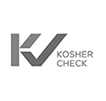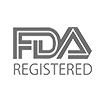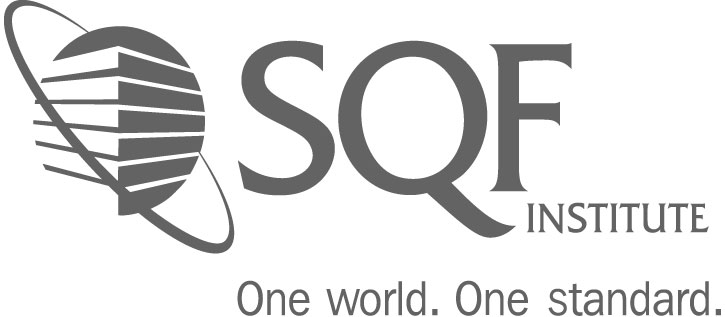
As environmental efforts increasingly play a more significant role on the commercial stage, brands are expected to take sustainability seriously. This consideration is no longer just a bonus feature of your company — it’s a necessity. In fact, sustainability is a priority for 65% of businesses.
As a coffee business, you’re responsible for offering eco-friendly processes and services. Let’s explore why going green is important and how to make your coffee brand more sustainable.
Learn More About Our BPi Compostable Certification
Understanding Sustainability in the Coffee Industry
Coffee is among the most highly traded commodities, with a global footprint of 10 million hectares spread over 12.5 million farms. The worldwide coffee market is estimated to be worth more than $166 billion by 2029. Many cultures and countries share a deep love for coffee, especially in the United States — 73% of Americans drink the beverage daily.
Unfortunately, as coffee production and consumption continue to rise, so do sustainability concerns:
- Unsustainable farming leads to deforestation, habitat loss, and soil degradation.
- Standard processing methods contribute to pollution, and wasteful water usage strains the Earth’s resources.
- Various steps in the supply chain, such as roasting, grinding, and exportation, contribute to carbon emissions.
- Increased consumption of single-use coffee pods and cups significantly impacts the planet, as they are made from materials that are difficult to recycle.
Many brands and businesses focus on coffee sustainability to reduce the industry’s harmful environmental impact. Creating sustainable coffee involves using eco-friendly practices and extends to farmers’ fair treatment and compensation. These practices are vital for the industry’s long-term success, as they can help protect the ecosystems that make growing coffee possible. Quick action can help keep coffee accessible.
The Benefits of Prioritizing Sustainability
See how sustainable coffee practices can benefit your business.
Customers Connect with Your Core Values
People make judgments about products and businesses in less than seven seconds. Upon discovering a new brand, many customers use its core values to help form this judgment.
Regardless of whether you sell the most delicious coffee in the industry, customers will only resonate with your brand if they agree with its values. As a coffee retailer, you have the power to positively affect the world by implementing sustainable business practices. With more people caring about sustainability and expecting brands to take action, sustainable brand values can create an emotional connection with your customers to foster loyalty.
Customers Prefer Sustainable Brands
Sustainability is a crucial factor that influences buying behavior. In the U.S., coffee drinkers are increasingly aware of the environmental impact of their decisions. With this recognition comes a preference for high-quality, ethically sourced, and environmentally responsible coffee.
Around the world, organic coffee is also becoming popular as more customers prefer products produced with fewer chemicals and pesticides.
Plus, if your brand is sustainable, you can charge a premium. According to a global study by the IBM Institute for Business Value, 50% of respondents were willing to pay more for products with sustainable attributes.
Exploring Coffee Sustainability Certifications
Sustainability in the coffee industry usually starts at the origin. Farmers are encouraged to adopt organic and regenerative farming methods like agroforestry, which integrates coffee plants with other trees to form a microclimate. Such methods can help save water, boost biodiversity and soil health, eliminate the need for harmful chemicals, and limit waste.
With an extensive supply chain, all participants must work toward a more mindful industry. For example, innovative processing methods that reduce water use and carbon emissions are an emerging trend in sustainable coffee production. Closed-loop systems repurposing waste created by the production cycle are also becoming more common.
Farmers, importers, roasters, and retailers demonstrate their dedication to sustainability by achieving the following certifications:
- UTZ. This certification program empowers farmers to implement better methods, grow superior crops, and earn a higher income. The UTZ label indicates that farms and companies support sustainable farming and have met various requirements, including conserving the environment and providing safe working conditions.
- Fair Trade. This certification program betters livelihoods, shields the environment, and creates transparent supply chains. All certified products have met strict social, environmental, and economic standards.
- Rainforest Alliance. This certification program is committed to protecting and improving the climate, forests, human rights, and livelihoods. Certified companies and farmers prioritize sustainability in the supply chain and have met the Rainforest Alliance Sustainable Agricultural Standard.
- USDA Organic. The U.S. Department of Agriculture’s (USDA) National Organic Program sets the standards for organic products sold in the country. USDA Organic Certified Foods are produced using methods that cycle resources, preserve biodiversity, and maintain ecological harmony.
How to Make Your Coffee Brand More Sustainable
Explore some ways to make coffee more sustainable as a brand.

1. Analyze Your Products and Partners
Start by understanding your product’s journey and the various stages it goes through before landing in customers’ hands. Research the companies that roast, supply, export, process, and farm the coffee you sell.
Confirm if your partners have appropriate certifications, and inquire about your roaster’s sourcing and roasting practices. Alternatively, if you roast your own coffee, reducing the temperature or total roast time may help reduce carbon emissions. You might even consider purchasing an emission-free coffee roaster.
While only a few businesses know their entire supply chain, gaining insights where possible helps determine whether you need to seek out new partners that share your commitment to sustainability.
2. Implement Waste Reduction Strategies
Next, you should scrutinize your brand’s business practices. Are there areas where you could implement strategies to minimize waste?
For example, you could offer coffee bag recycling programs to your customers or develop clever reuse initiatives. Maybe you’ll allow customers to drop off their used coffee grounds to be donated to local community gardens and used as soil nutrients.
3. Use Sustainable Packaging
Today, a variety of packaging options are made from plant-based or organic materials.
Single-serve coffee deserves special consideration, as this brewing method is very popular. According to a Statista report, 27% of American coffee drinkers use single-serve machines. Your brand would likely benefit from offering pods for Nespresso and cups for Keurig to meet the market’s demands for conveniently brewed coffee.
However, as single-use pods and cups are often manufactured with materials that can be challenging to recycle, they can harm the environment. The number of cups for Keurig in landfills could loop around the Earth’s circumference more than 10 times. Many customers may also be concerned about the sustainability of pods for Nespresso.
To give your brand more visibility while still promoting mindful consumption habits that protect the planet, you should offer pods and cups that are more eco-friendly:
- Cups with easy-to-peel lids. When it’s easy for customers to separate the lid from the cup, they’ll be more likely to recycle their used cup.
- Reusable cups for Keurig. These filters enable customers to repeatedly use, wash, and reuse the same cups for Keurig.
- Compostable cups for Keurig. While these filters are another sustainable alternative, your customers may have to send them to a composting facility. A drop-off system to make this easier for customers is another excellent initiative your brand could implement.
- Recyclable pods for Nespresso. These pods are made of aluminum or paper and can be easily reused, recycled, or composted. Once again, you could encourage better consumption habits by offering drop-off points for used pods.
Communicating Your Brand’s Sustainability Efforts
Once you’ve made strides to go green, you must communicate these efforts through intentional sustainability advertising and branding. Being transparent about your practices will help you stay accountable as a brand and allow your customers to make informed choices. You can:
- Share information about where your coffee comes from, how it is sourced and produced, and the farms and cooperatives involved.
- Explain your values and how your brand is eco-conscious at different supply chain stages.
- Use images and videos to showcase your brand’s sustainable practices visually.
- Achieve certifications to prove your sustainability efforts.
- Share your brand’s future sustainability goals and the progress it makes.
This messaging should be cohesive everywhere, from your social media and website narrative to your product packaging and press releases.
Most importantly, your communication must be honest. To build customer trust, ensure that every claim you make is accurate and truthful. You also want to be able to back up everything you communicate.
Joe’s Garage Coffee Takes Sustainability Seriously
As a private-label coffee and contract manufacturing partner, Joe’s Garage Coffee is serious about sustainability. With a USDA Organic Certification and a Fair Trade Certification, we’re committed to offering products that are environmentally friendly and support local economies.
Plus, when you work with Joe’s Garage Coffee, you’re guaranteed to receive outstanding, personable service. Our high-quality roasts, quick lead times, and customizable capacity fulfill the unique needs of the coffee brands we partner with. We can help you become a more sustainable brand with our roast-to-order or co-packaging services, including our recyclable cups for Keurig and pods for Nespresso.
If you are ready to get started, contact us today to learn more.
Check Out Our Organic Certification
Related Content









